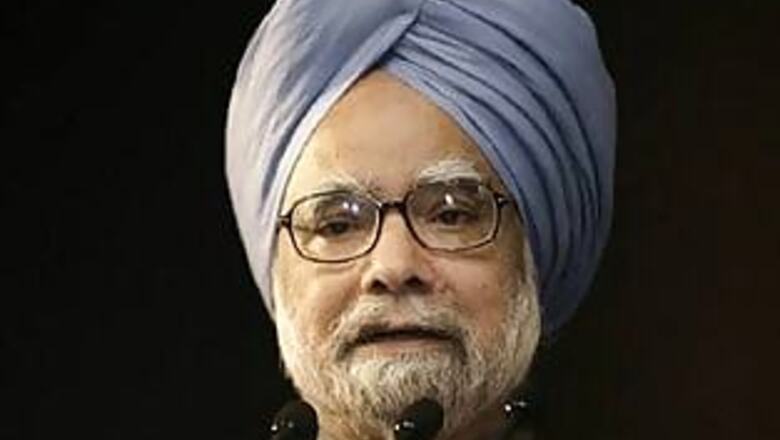
views
New Delhi: Prime minister Manmohan Singh and US President Barack Obama meet next week to strengthen ties, with the emerging Asian power increasingly playing a bigger role on global issues such as climate change and trade.
Manmohan Singh's three-day state visit starting on November 23 is seen by New Delhi as a touchstone of Obama's intention of sustaining a relationship that deepened under his predecessor George W Bush.
India is also widely seen as a key geopolitical player in helping bring stability to a South Asian region overshadowed by violence in Afghanistan and Pakistan as well as militant attacks like last year's raids on Mumbai.
Singh and Obama will hold talks on issues ranging from curbing carbon emissions - where the two sides are poles apart - to multi-billion dollar defence contracts and speeding up the completion of a landmark civilian nuclear deal signed last year.
Singh's trip will be the first state visit of the Obama administration, highlighting the prime minister's personal push for broadening ties with Western economies and moving India away from decades of mistrust with Washington.
The success of the trip may be measured by whether the two leaders manage to dispel any doubts of Washington's commitment to New Delhi in a region where it rivals China and Pakistan -- both seen as US foreign policy priorities.
"The relationship is good, but lacks a central defining issue, such as the civilian nuclear deal, that defined the relationship during the presidency of George Bush," said Walter Andersen of Johns Hopkins University's South Asia Studies centre.
"(The visit) provides an opportunity for India and the US to introduce new ideas for regaining the bilateral relationship's strategic momentum."
Former US President Bill Clinton started US efforts to build ties with modern India when the Cold War ended nearly two decades ago and India began to liberalise its economy in the 1990s.
Focus on China, Pakistan
His successor Bush elevated relations with a 2008 civilian nuclear deal that ended an embargo imposed in 1974 after New Delhi tested a nuclear bomb. Bilateral trade went from $5.6 billion in 1990 to about $43 billion in 2008, a 675 percent rise.
But Obama's early focus on Pakistan to fight the Taliban and emphasis on relations with China irked some in India, which had hoped to build on Bush's legacy.
"In terms of important but second-tier issues -- trade, climate change, even defence sales and counter-terrorism -- relations are good, and may get better," said Stephen Cohen, a South Asia specialist at the Brookings Institution think tank.
"However, there seems to be a parting of the ways at the strategic level."
US strategy for Afghanistan, focused partly on Pakistan which Washington sees as a necessary ally, has been criticised as ignoring the concerns of regional countries such as India, which competes with Islamabad for influence in Kabul.
India and Pakistan have fought three wars since independence from Britain in 1947.
India, whose long-running border dispute with China has sharpened in recent months, sees the Asian giant's huge influence over the US economy as leverage Beijing enjoys over Washington.
India also worries about Chinese support for Pakistan. Beijing is concerned about the Dalai Lama's presence in India.
"So when India sees Obama preoccupied with China and Pakistan it gets worried," Chintamani Mahapatra, foreign policy professor at the New Delhi-based Jawaharlal Nehru University.
"It will look for a statement that will acknowledge a greater role for India in the region and assuage the fact that the Obama administration has so far marginalised New Delhi." But Washington values India's importance as an economic power, its huge market, a booming IT industry, its military might and potential as a counterweight to China.
Among the nettlesome issues Singh will discuss is the nuclear deal held up now for want of liability protection for American firms and nuclear fuel reprocessing rights for India.
India will also hope Obama declares his support for a permanent seat for Indian on the UN Security Council.
"We can talk strategy, we can talk economics, we can talk the great global issues of the day," said consultant Frank Wisner, former US ambassador to India. "We need India's cooperation if we are to achieve any of our objectives."




















Comments
0 comment